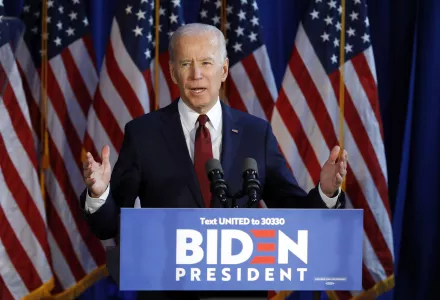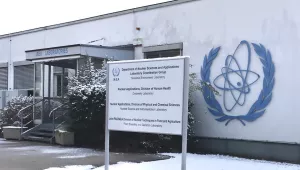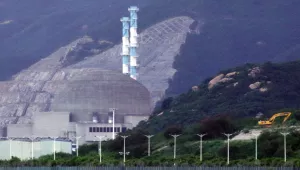
When now-retired Republican Sen. Bob Corker put a hold on U.S. arms sales to Saudi Arabia in 2017, White House trade advisor Peter Navarro drafted a memo titled “Trump Mideast arms sales deal in extreme jeopardy, job losses imminent.” The memo, along with the Trump administration’s subsequent decision to lift the hold, is often framed as cynical trade-off: Billions of dollars’ worth of U.S.-made military hardware were helping to sustain a humanitarian crisis in Yemen, but those same dollars could help support thousands of American jobs. Faced with the choice between workers at home and human rights abroad, the Trump administration appeared to have put “America first.”
But bombs aren’t the only thing the American worker can build for the Middle East. Just as President Donald Trump was ramping up arms sales in the Gulf, he was also working to kill the Iran nuclear deal. A primary component of that deal was economic—as sanctions lifted, Western companies could help rebuild Iran’s aging civilian infrastructures by resuming trade and investment in Iran. One of the earliest contracts that Iran signed called for American aerospace manufacturer Boeing to build 110 jumbo jets—worth roughly $20 billion—to help revive Iran’s civilian air fleet. The estimated nearly 20,000 U.S. manufacturing jobs the civilian contract could have created was strikingly similar to number associated with the Saudi arms deal, yet it was terminated when Trump backed out of the Iran deal and reimposed sanctions.
These two episodes highlight what could be a turning point for U.S. foreign policy. Trump and his challenger Joe Biden both campaigned on promises to revitalize U.S. manufacturing and reduce U.S. military interventions abroad. Yet for the last four years, both Trump and his critics painted a false trade-off between those endeavors by overlooking the economic dimensions of U.S. diplomacy. Now that Biden is president, his administration can either accept that false trade-off or design new policies that pursue his domestic and diplomatic agendas in tandem. One of his biggest foreign-policy challenges is to reengage Iran and North Korea, two countries whose regimes have sought political and economic relations with the West for decades.
Christopher Lawrence, "Making Peace with Iran and North Korea Could Be Good for U.S. Workers," Foreign Policy, March 25, 2021.
The full text of this publication is available via Foreign Policy.





